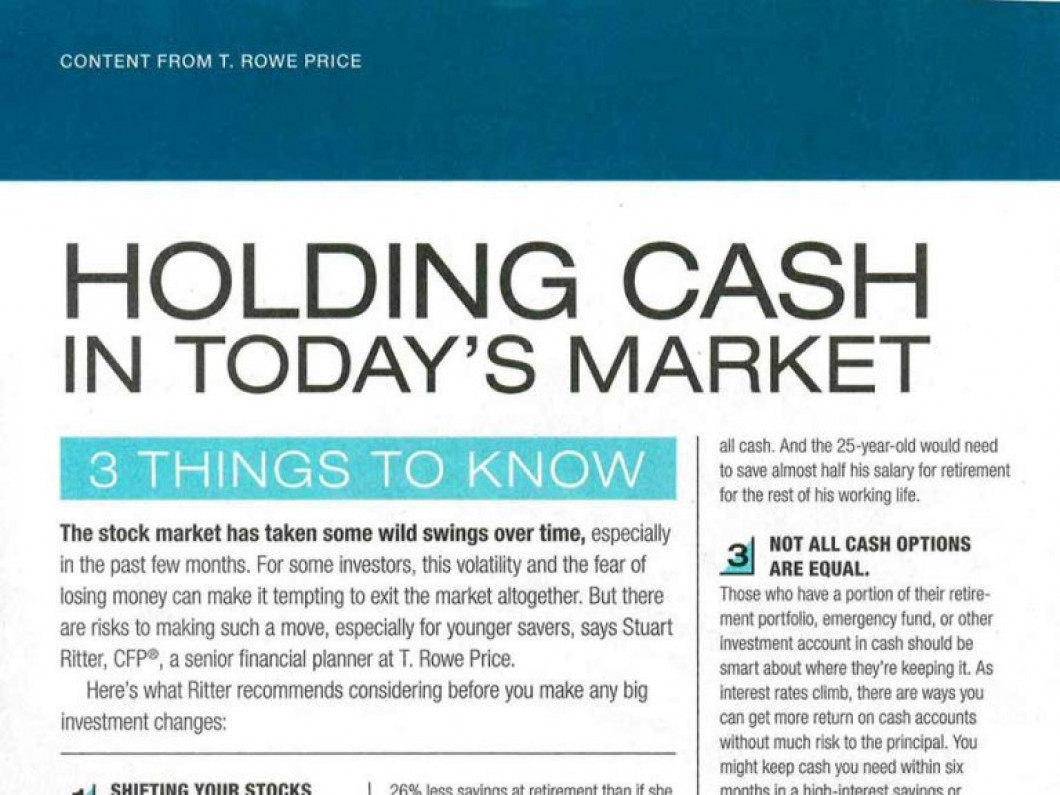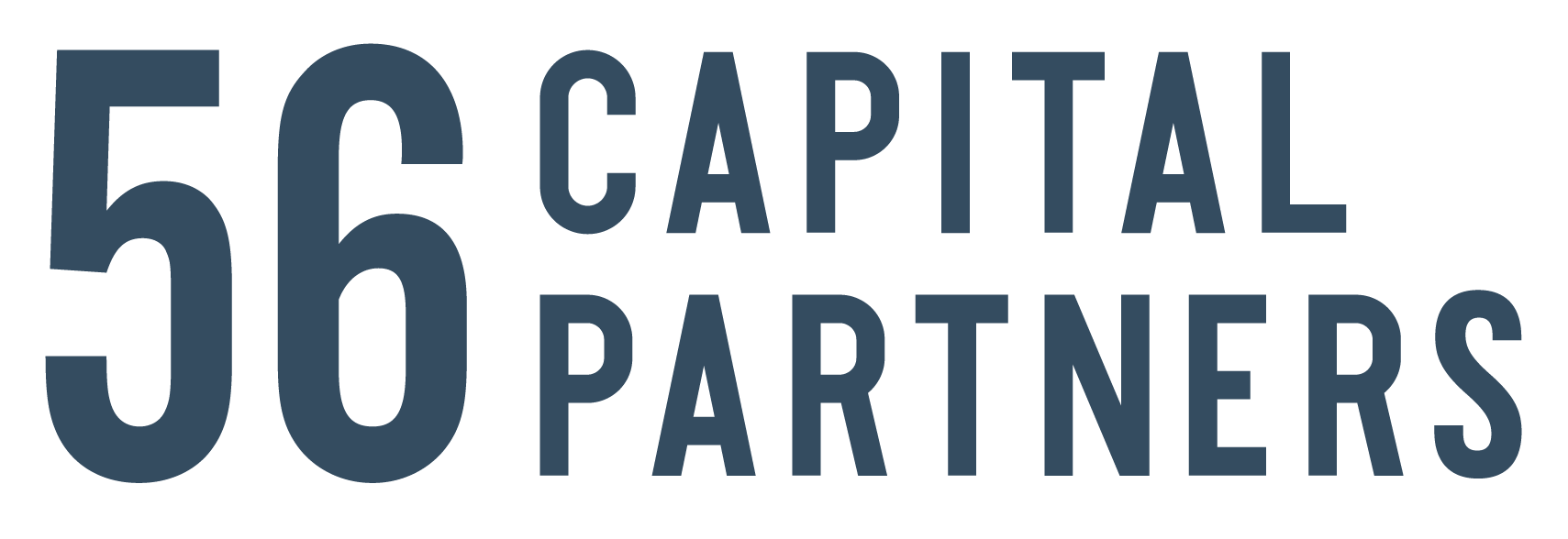
Do not think of this as holding cash in your wallet or literally in your hand. Think of the bigger picture and your overall portfolio. As I was browsing through a magazine, I noticed an article* about holding cash and the long-term effects it has on planning. Given the sharp decline in the market and rapid rise that created a "V" on the chart, many clients asked about going to cash during the December swoon. You can find a lot of articles out there in which they talk about not being invested during the top ten return days in a year and the cost it has on long-term performance. This article though, took an inverse look at the problem and not being invested at all. During December, we advised clients to stay invested for several reasons such as, dividends and interest would be reinvested at lower values. We also had accumulated a higher cash position naturally, that we also put to work during the rebound. While cash plays a role in planning, more so in emergency fund planning, it does come in handy for portfolio allocation. However, to go to all cash out of fear as many clients wanted to, would have caused them to miss out on one of the largest meteoric rises in history. The final point of the article is that not all cash is created equal, which we agree with. This is why we come up with the allocated ratios to accounts like, Saving, Checking, Brokerage, IRAs, and other types of accounts. We maintain liquidity, but are careful to have nothing too excessive and with the cash we do hold, we look to higher rate accounts. All said and done, the lesson we recognized was cash is a tool in financial planning that can be used efficiently and inefficiently; question is do you know which one you are? *Source: Money Magazine (T. Rowe Price) Written By: Derek Martin




